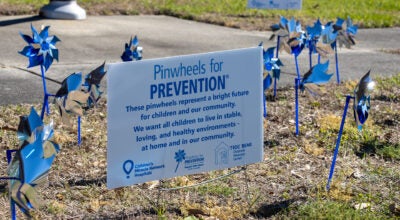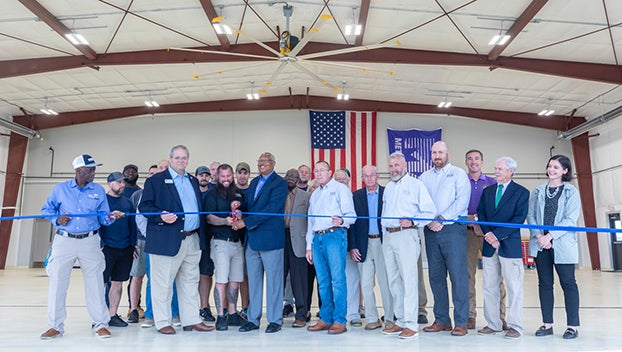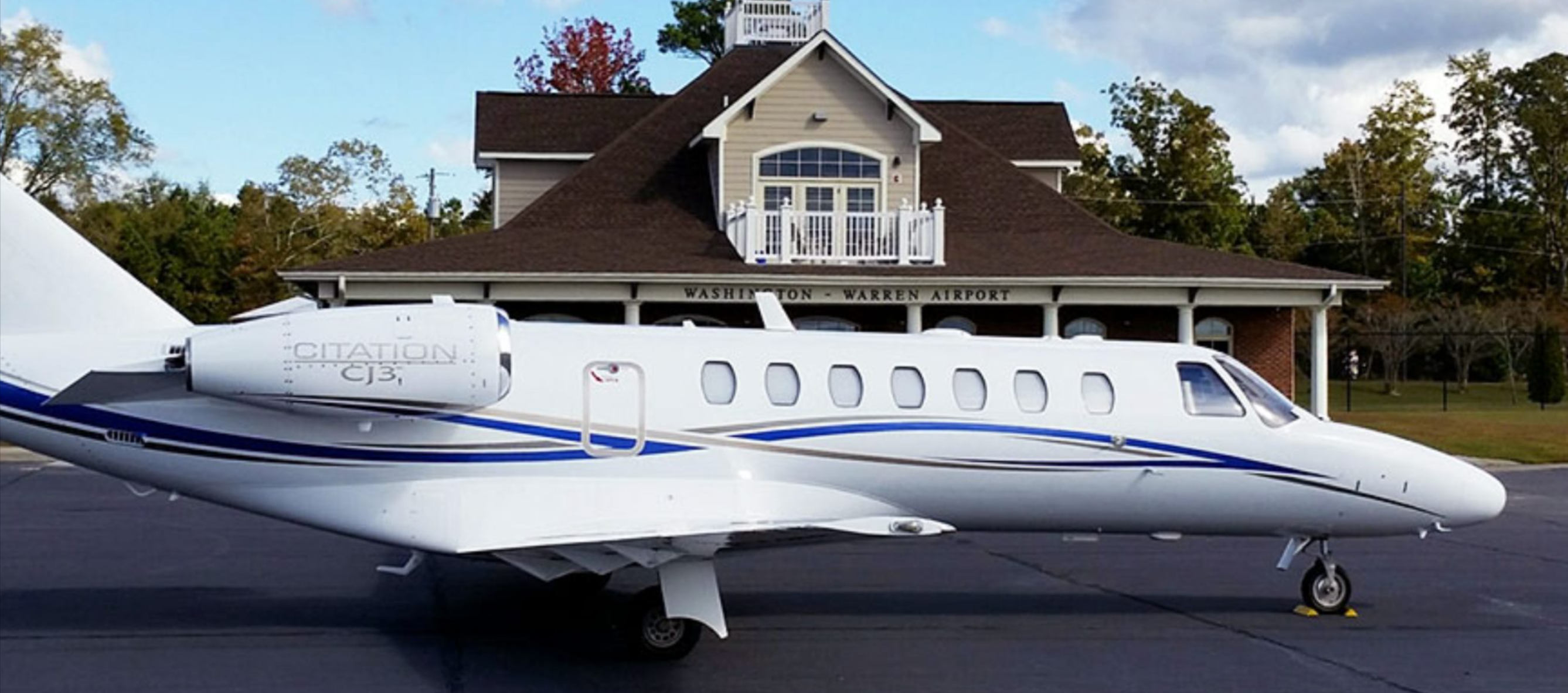Washington seeking public input on accessibility for people with disabilities
Published 8:03 pm Thursday, June 6, 2019
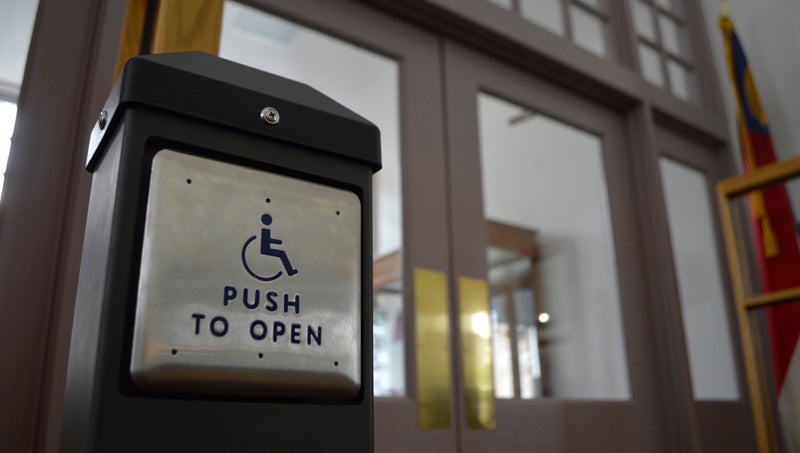
- DOORS TO KNOWLEDGE: In recent years, patrons of the Brown Library have benefitted from automatic doors activated via switches at the entryway. (Matt Debnam/Daily News)
The City of Washington is updating its plan to provide equal access to people with disabilities. From its programs and facilities to sidewalks, street crossings and pedestrian right-of-ways, city government is seeking public input to help address areas of the city where accessibility could be improved.
According to Stacey Everette, the city’s Americans with Disabilities Act coordinator, it’s a new beginning for a long-term process that started back in 1996, when the city first put together its first ADA Transition Plan. While the city has made significant improvements in access for people with disabilities since that time, the new effort seeks to continue the process and make the city more easy to navigate for everybody.
“What we’re trying to do now is start a new plan to update that old one,” Everette said. “The people that were on those committees before, staff has turned over, so it’s almost like starting a new Transition Plan. So what we’re going to do is take that old information that we have and then get public input to put a transition plan together. It’s a process and it will take a couple years, but what it’s going to help us do is be able to request funding for anything we may see.”
After collecting feedback and locations that need attention over the next few months, the city will begin prioritizing areas to request funding for improvements in next year’s budget. Everett said the plan would be revisited on a yearly basis, and the city may also form a committee to help guide ADA-related improvements.
“It’s going to be an ongoing process,” Everette said.
Over the years, the city has made considerable strides in terms of accessibility. In 2016, Washington unveiled an all-inclusive playground at Havens Gardens, complete with wheelchair-accessible play structures and a liberty swing, which allows kids in wheelchairs to enjoy an activity that might otherwise be out of reach. More recently, the installation of automatic doors at the Brown Library was another welcome improvement.
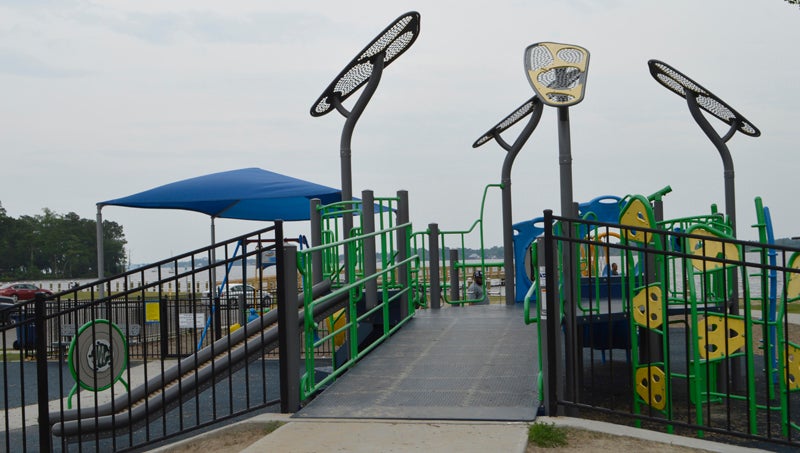
FUN FOR ALL: A redesigned playground at Havens Gardens park, opened in 2016, includes accessible play structures and a liberty swing, which allow children in wheelchairs to enjoy a swing set. The site is recognized as a National Demonstration Site for its inclusive design. (Matt Debnam/Daily News)
“As far as getting in and out of government buildings, most of them have elevator access or a few number of steps,” said Linda Boyer, who uses crutches in her daily mobility. “The Brown Library has gotten automatic doors, which are just wonderful. I think scattered around the downtown area there are handicap parking spaces that give access to the downtown area.”
For the visually impaired, Blind Center Director Christie Moler says clients struggle to live independently in Washington. Sometimes, these clients have to relocate to larger metropolitan areas where there are aids in place to help navigate public spaces.
“My clients need to walk places — they can’t drive,” Moler said. “So if they are anywhere downtown, they need sidewalks that are flat and not broken. They could use the beeping at the lights so they can hear it. Honestly, it’s really sad, but if anyone who is visually impaired wants to live or work independently, they can’t stay in Washington. They basically have to go to Greenville or Raleigh.”
To help make Washington more accessible, the city is currently seeking input from the following people:
- People living with disabilities — the city seeks representatives with a variety of disabilities;
- Senior citizens;
- Other individuals or members of groups that encounter barriers related to transportation, such as parents of minor children with disabilities;
- People with experience and knowledge of ADA planning and requirements or who serve disabled populations;
- Interested Washington residents.
Those interested in providing input on the plan can do so by emailing Everette at severette@washingtonnc.gov or calling 252-975-9322. Email feedback should include the following information:
- First and last name;
- Email address;
- Phone number;
- Whether you are willing to be contacted for more information;
- Comments, concerns or suggestions related to ADA accessibility in the city.


